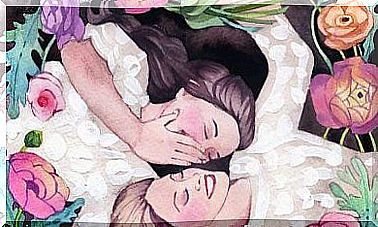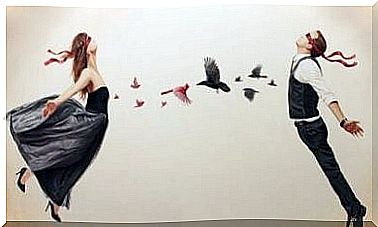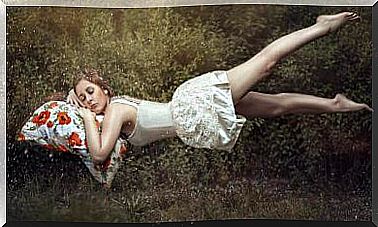Can We Trust Our Intuition?

There is a lot of material to help us plan when it comes to solving problems, but what is this what we call intuition? It’s something that transcends reason. If we search the dictionary for terms related to intuitions, the word “feel” will appear. The definition that accompanies the word speaks of intuiting, guessing, or having the impression that something is going to happen.
Yes, we have the ability to make decisions in a matter of seconds and not make mistakes. So it seems impossible that a mechanism that contributes so significantly to our survival is governed by luck. Especially if we take into account the number of times this mechanism gets it right.
The weakness of intuition
We know we can’t always trust our first impressions. We all commit to memory several times that we trusted them and they ended up failing. On the other hand, we also know that our intuition works with heuristics or shortcuts that, due to their globalized and general nature, are far from being precise.

On the other hand, intuition has always been a mechanism more associated with women (that’s why we use the expression “female intuition” in popular language). Furthermore, it was always thought to be something “magical”: a skill or a gift. However, although science has not been able to explain certain situations, we know that its operation has a closer and more understandable explanation than magic.
The association mechanisms that we have in our brain, many of them fast and fast, are at the base of our intuition. They are fast that way because they are able to work with a great deal of information and because, in addition, they can do so in a focus away from our conscious awareness.
Is it possible to influence quick thoughts?
The story of Abbie Conant, told by Malcolm Gladwell in his book “Intuitive Intelligence”, is not just a story of the struggle against machismo in music. It’s also a reflection of how it’s possible to favor intuition when reason gets in the way. Abbie played the trombone – a historically male instrument – in Italy in 1980. He sent many requests to European orchestras and only the Munich Philharmonic Orchestra responded.
The audition was held behind a curtain, because one of the aspirants was the son of a person known to the judges. Abbie Conant played the role of concertino for trombone, by Ferdinand David, and missed one note. Despite having left the audition pessimistic, she was chosen to be part of the orchestra.
Music experts recognized, in a matter of seconds, the quality of an interpretation. After hearing the piece performed by Conant, they were so sure they didn’t want to hear any more.
The biggest surprise for them was when they asked the chosen trombonist to come out from behind the curtains and a woman appeared on stage. A woman who, in their minds, could not have the ability to play such an instrument. Despite having hired her, they put her through numerous tests to finally make it to the courts and be recognized.
This is an example of how we can manipulate our surroundings to let intuition flow. The curtain is the secret in this story. By canceling out part of the thought, only sensitivity and purity were left. Without the curtain, Abbie’s worth would be undermined by one of the ogres of intuition: prejudice.
The Importance of Clearing Space on the Path to Trusted Intuitions
Despite everything we’ve said, intuition is often reliable when we have little time to make a decision.
Imagine that you are offered a change of department at the company you work for and, furthermore, they say it is a decision you need to make urgently because they need to cover this new job. In cases where we don’t have time to make a decision, trusting our intuition is the most appropriate option.

It is also a good ally in processes where there is a lot of information. So much so that it is impossible to put it on a scale where we can equal reason. In these cases, intuition, when working in a part far from the focus of our emotions, has greater power to give us a solution based on the amount of information, without saturating our logical system.
Intuition is not free from being altered by cultural contexts, prejudices or runaway emotions. In other words, it can do a lot of tricks. For that reason, we can turn it into a resource, but never into a single solution. There are certain situations for which it is better, given enough time, to make a decision by thinking consciously.
Finally, we can conclude that we can improve our intuitive process by trying to identify the quick associations that intuition works with by testing them.
We can see to what extent voters of a particular political party identify with a particular characteristic, or to what extent the inhabitants of a particular country follow a custom that identifies them as such.
Improving and sketching these types of associations will make our intuition work more efficiently, as the quick associations we’ll be able to rely on in our brain will be more accurate.









